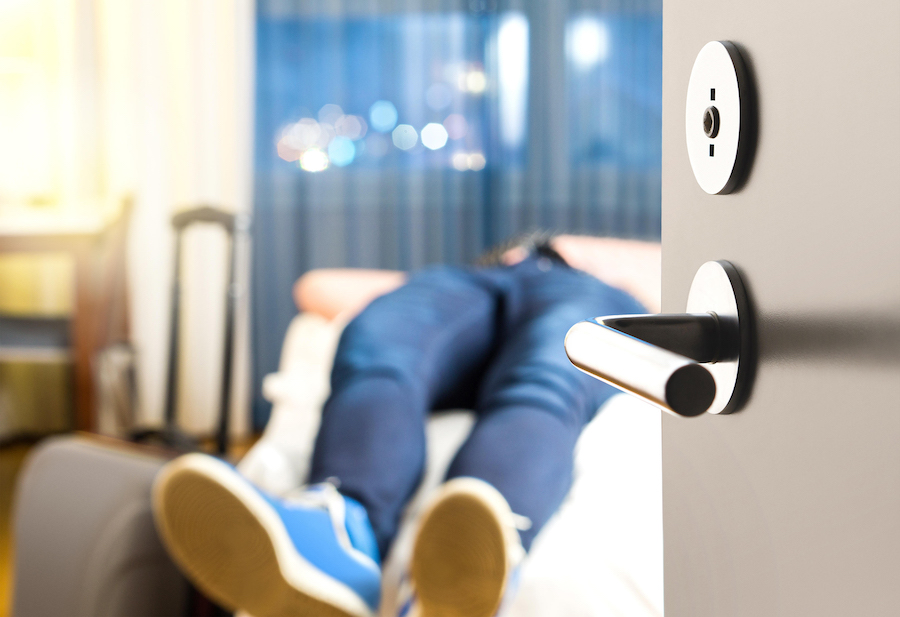9 jet lag cures for your summer holidays
Combat the effects of long-haul travel with these pro tips
Holidays to far-flung destinations offer the opportunity to discover incredible places and truly get off the beaten track.
But there’s one side effect of long-haul flights that can put a dampener on the start of your break, and that’s the dreaded jet lag.
While you might have planned to head out exploring as soon as you landed and make the most of your time off, your brain and body are telling you to crawl into bed and get some much-needed shut-eye.
Next thing you know you’re wide awake at 3am and wishing you could get back to sleep before dawn.
Why do you get jet lag?
“Travelling across multiple time zones puts both a physical and mental stress on our bodies as our internal body clock can’t keep up with the sudden shift,” says Dr Hana Patel, resident sleep expert at Time4Sleep.
“Our body clock stays in the time zone we have travelled from, so essentially we need time to recalibrate to the new time zone.”

Crossing several time zones can cause jet lag
The term ‘body clock’ means the circadian rhythm, a natural cycle lasting 24 hours.
“Within this cycle you may notice physical, mental, and behavioural changes as our bodies move through and recognise different times in the day,” Patel continues.
“Our bodies react to these changes by sending signals to feel drowsiness at night and alertness during the day.”
That’s why you can end up feeling wired at night and sleepy during the day when jet lag strikes.
Eventually your body clock will adjust, but you can speed up the process by doing what seasoned travellers do whenever they’re jet-setting across the globe.
Here are nine expert-approved ways to cure that groggy, jet-lagged feeling…
1. Get in sync with the time zone

Switching on to local time will help your body clock
Your body clock might be telling you it’s bedtime in the morning, but the sooner you can get into your usual routine in the new time the better.
“Try to adjust your sleeping and eating schedule to the local time as soon as you can,” says Lee Thompson, travel expert and co-founder of boutique travel company Travel City.
“This means resisting the urge to nap in the middle of the day or eating at odd hours according to your home time zone.”
2. Eat healthily
I made the most amazing fruit salad yesterday! 10/10 recommend pic.twitter.com/1DJke6YmtS
— Lex 🫧 (@Bodytootiny) June 14, 2023
It’s common to crave carb-heavy meals when you’re tired, but you’d do better to munch on healthy snacks when you’re jet-lagged.
“Making sure you have a variety of nutrient-rich fruits that also provide hydration are really helpful: berries, peaches, apples, pears and melons are all good examples,” says Dr Federica Amati, nutritional scientist and scientific advisor for supplement brand De-liver-ance.
“Nuts contain magnesium, fibre and complex carbohydrates that can maintain energy levels without causing an increase in blood glucose levels or insulin response.”
3. Hydration
“Dehydration can exacerbate the symptoms of jet lag,” Thompson says.
“Drinking plenty of water can help your body cope with the changes and promote overall wellbeing.”
And while a glass of wine might help you nod off more quickly, alcohol can interfere with your sleep cycle, so it’s best to avoid it if you want to acclimatise more quickly.
4. Light exposure

Try going for a walk in daylight hours
“Bright light is very powerful in helping our body clock adjust,” says Nicky Kelvin, editor at travel website and blog The Points Guy.
Getting outside in daylight (even if it’s not super sunny) will signal to your body clock to get in sync with normal waking hours.
“However you should avoid light at specific times of the day, such as the lead-up to wanting to sleep, as it helps to prepare your brain for bed, urging it to shut down slowly,” says Kelvin.
Similarly, the blue light from digital devices can fool your body into thinking it’s still daytime.
“Avoid looking at them close to bedtime or if you wake up in the night,” he adds.
“You can further reduce the impact of these digital devices by installing blue-light reduction apps or using night mode.”
5. Stay active
Nothing like a jet lag inspired run to see a city before everyone else rises 🌅❤️🇬🇧 pic.twitter.com/3bgkIk6g32
— A/Prof Jodie Ingles (@jodieingles27) June 10, 2023
You might not feel like hitting the gym as soon as you land, but exercise can serve to shake off post-flight grogginess and curb jet lag.
“Moderate physical activity can help reset the body clock and promote sleep,” says Thompson. “A brisk walk or light jog can be particularly helpful.”
6. Power napping
A short snooze can give you the boost you need to fight jet lag – but be sure to set an alarm and don’t nap too late in the day.
“Up to 20 minutes can help if you are experiencing sleep disruption as a result of jet lag,” says Kelvin.
“However, avoid longer naps during the daytime at the new location as much as possible.”
7. Carefully-timed caffeine

A tea or coffee treat can help you stay focused
“Consuming caffeine won’t cure jet lag, but it may be a tool to help you stay alert and focused during the daytime,” says Kelvin.
Glugging several espressos isn’t a good idea if you’re sensitive to caffeine, however.
The stimulant can stay in your bloodstream for up to 10 hours, so time your tea or coffee for the morning when it won’t interfere with your sleep at night.
8. Sleep aids
Some people take jet lag medicines or melatonin supplements before bed when they’re travelled through several time zones.
“Jet lag medication works by helping you regulate your sleep patterns,” says Dr Babak Ashrafi of Superdrug Online Doctor.
“It does this as it contains a natural hormone called melatonin, which helps your body to sleep.”
Always consult a healthcare professional before taking any supplement.
9. Don’t fight it
We survived the last 5KMs of 20KMs walk over 4 evenings.
What an experience.
Tips: don’t sign up for similar event when you are having heavy jetlag. The suffering effect is too much. pic.twitter.com/tr4v9pDOw8
— Ferry Haris (@FeHa) June 2, 2023
“Of course, jet lag isn’t fun – but if you work yourself into a state worrying about not sleeping, or the risk of missing out on your new destination, you’re likely to feel a whole lot worse,” says Thompson.
He suggests taking it easy for a couple of days and having calming distractions such as audiobooks or podcasts to listen to when you can’t sleep.
“Above it all, take it easy,” he says. “Jet lag is just your body’s way of being a bit off-kilter, so listen in, treat yourself gently and don’t rush it. Like all things in life, it’ll pass.”
The Press Association
Latest posts by The Press Association (see all)
- Best places to see bluebells this spring - April 2, 2025
- Does sunscreen expire? Everything you need to know about SPFs - April 2, 2025
- Top Gun and Batman star Val Kilmer dead at 65 - April 2, 2025
- Actor Richard Chamberlain dies aged 90 - March 30, 2025
- 5 new books to read this week - March 26, 2025




















